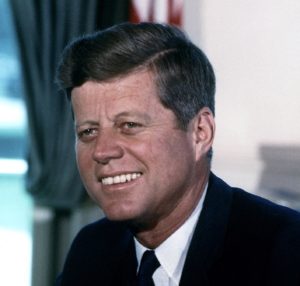Recently, the egalitarian movement has attempted to diminish the concept of “talent” or “giftedness” by promoting the idea that we are all essentially equal in most, if not all, respects. This is an attractive proposition in its potential to mollify the feelings of inferiority that many suffer when they see the achievements of others paraded around them. The social media highlight the glitterati, the celebrities whose names are household words and whose wealth and lifestyle induce feelings of inadequacy among those peering in from the outside. Young people, in particular, are feeling increasingly excluded from the mainstream–a condition significantly exacerbated by Covid confinement.
Attempting to minimize these feelings of inadequacy among the young, athletic organizations award participation trophies for members of the losing teams and curtail victory celebrations for the winners. With similar intent, the California Frameworks for Mathematics denies the existence of giftedness and refuses to provide special instruction for children of exceptional ability, while pouring substantial resources into educating those with learning difficulties. Teachers in Ontario, Canada are freed from passing competency tests in mathematics because it was ruled discriminatory when it was discovered that the percentage of minorities able to pass the qualifying examinations was one standard deviation below the average.
In some ways, this movement toward an egalitarian society might seem to be inclusive and well-intentioned, building toward a society in which everyone participates equally in the fruits of life. The unfortunate aspect of this approach is that it is uninformed by the history of our species. All of the great achievements in the arts, literature, philosophy the sciences and technology have come from the intellectual and creative elite. In his well-researched treatise Human Accomplishment, Charles Murray asserts that the overwhelming number of world-changing discoveries, inventions, and creative works come from a remarkable few whom he designates as the “giants” in those domains, stating:
When you assemble the human résumé, only a few thousand people stand apart from the rest. Among them, the people who are indispensable to the story of human accomplishment number in the hundreds. Among those hundreds, a handful stand conspicuously above everyone else.
This “handful” of giants in each field have contributed more than all the rest. The harmonies of a Beethoven symphony, the grandeur of Michelangelo’s Sistine Chapel and the pathos of a Shakespearean sonnet have brought a quality of aesthetics into our world that could not have been created by thousands of average people toiling at a pedestrian level. Similarly, the medical breakthroughs that brought us penicillin and vaccines against polio, tetanus, and tuberculosis came from the intellectual and creative elite. Our modern technologies that enable us to travel outside the bonds of earth rest on the shoulders of Newton and others who built science on a mathematical foundation. It is people of such exceptionality in the next generation who will find the cures for cancers, the technologies to feed and water the world, provide green energy resources and enhance the quality of human life.
To encourage this precious resource, we must celebrate the excellence of those with special talents and the passion to bring them to fruition. In such an environment, everyone will thrive and enjoy a better quality of life. This idea is captured in a quote attributed to one of America’s most intelligent presidents, John F. Kennedy.

No American is ever made better off by pulling a fellow American down, and every American is made better off whenever any one of us is made better off. A rising tide raises all boats.
